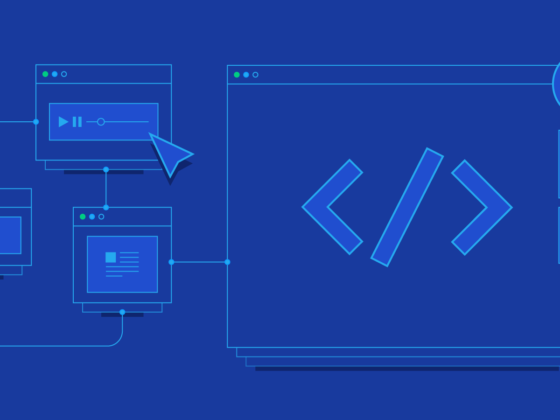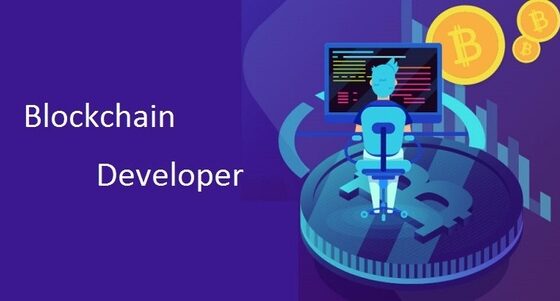
Logan Romford, software developer / @LoganRomford
Many aspiring programmers face a common hurdle: the feeling of not being ready or good enough to tackle real-world projects. In this article, we share experiences, advice, and encouragement from the programming community for those grappling with this mindset. This guidance and inspiration aims to help individuals overcome their insecurities and build confidence in their programming abilities.
Embracing the Learning Process
Embracing the learning process and understanding that programming is a continuous journey is vital. It’s important to view challenges as opportunities for growth and be patient with personal progress.
Seeking Feedback and Support
Seeking feedback and support from peers and mentors can improve coding skills and build confidence. Collaboration, code reviews, and constructive criticism are invaluable in refining programming abilities.
Overcoming Impostor Syndrome
Overcoming impostor syndrome, a common phenomenon among programmers, requires acknowledging one’s accomplishments, focusing on self-improvement, and resisting the urge to compare oneself to others.
Starting Small and Celebrating Success
Starting with small, manageable projects and celebrating each success is key. Break down complex tasks into smaller components and build confidence through incremental progress.
Accepting Imperfection
No programmer is perfect. Aspiring programmers should accept their limitations and learn from their mistakes, rather than striving for unattainable perfection.
Setting Realistic Goals
Setting realistic, achievable goals when learning to program is crucial. Establish both short-term and long-term objectives to maintain motivation and measure progress over time.
Getting Hands-On Experience
Hands-on experience is essential for building confidence and competence. Tackle real-world projects, participate in hackathons, or contribute to open-source initiatives to gain practical programming experience.
Utilizing Online Resources
Expanding one’s knowledge and skillset is possible with online resources like programming forums, blogs, and video tutorials.
The Power of Persistence
Persistence in the face of challenges and setbacks is crucial. Remain committed to your goals, even when the going gets tough.
Finding a Supportive Community
Joining a supportive programming community offers many benefits. Participate in programming forums, local meetups, or online groups to connect with like-minded individuals who can offer advice, encouragement, and camaraderie.
Building a Routine and Staying Disciplined
Establishing a routine and staying disciplined when learning programming helps make steady progress and build confidence in your skills.
Handling Frustration
Handling frustration when facing programming challenges may involve taking breaks, stepping away from the problem, and returning with a fresh perspective. This approach can help develop resilience in your programming journey.
Learning from Others’ Code
Studying well-written code and understanding how experienced programmers approach problem-solving can improve coding practices and boost confidence.
Embracing the Art of Debugging
Embracing debugging as an integral part of the programming process is important. Learning to identify and fix errors in code can ultimately enhance problem-solving skills and programming abilities.
Taking Advantage of Pair Programming
Pair programming, a practice where two programmers work together on the same code, can help you learn from your peers, improve your coding skills, and overcome the feeling of not being ready.
Developing a Growth Mindset
Developing a growth mindset when learning programming involves embracing challenges and viewing setbacks as learning opportunities. This mindset can contribute to personal growth and confidence as a programmer.
Exploring Different Learning Styles
Exploring different learning styles and finding the best approach for one’s individual needs can help retain information more effectively and build confidence in programming abilities.
Practicing Problem Solving
Honing problem-solving skills to build confidence in programming is essential. Tackle coding challenges, puzzles, and real-world problems to sharpen critical thinking and analytical skills, which are crucial for success in programming.
Conclusion
The “I don’t feel ready” mindset is a common challenge for many aspiring programmers. By embracing the learning process, seeking feedback, and celebrating small victories, individuals can overcome their insecurities and build the confidence needed to excel in the programming world. The insights shared in this article serve as valuable guidance for those looking to overcome this hurdle and embark on a fulfilling programming journey. Remember that everyone’s journey is unique, and progress might not always be linear. Stay committed to your goals and trust the process, and you will find yourself growing as a programmer and gaining the confidence you need to tackle real-world projects.









